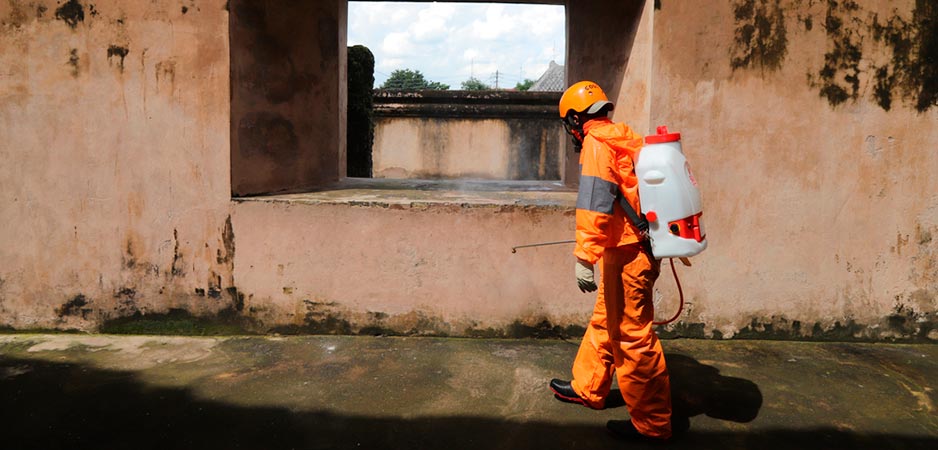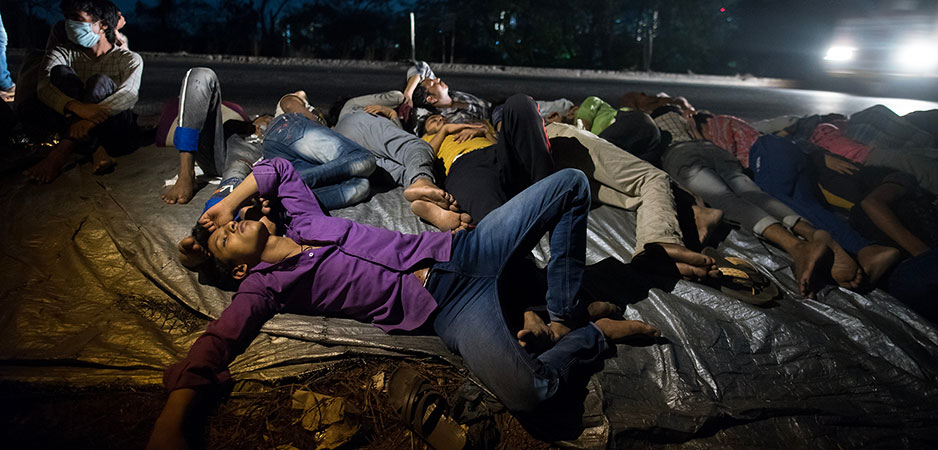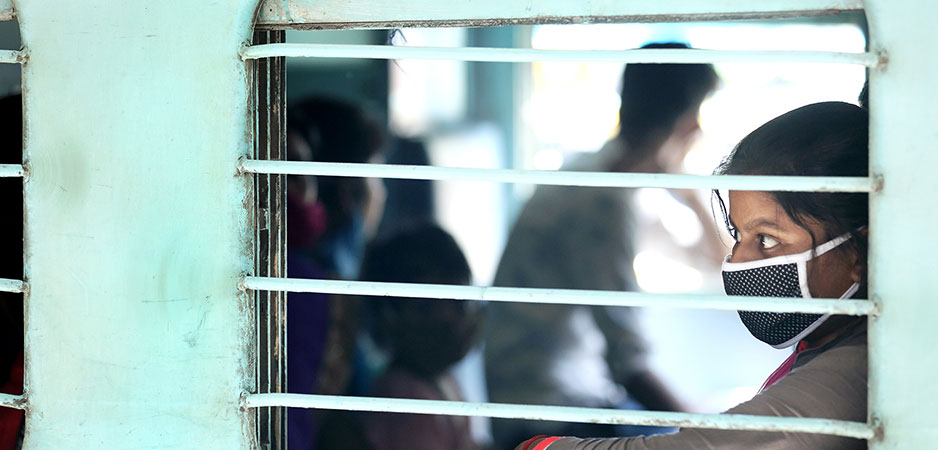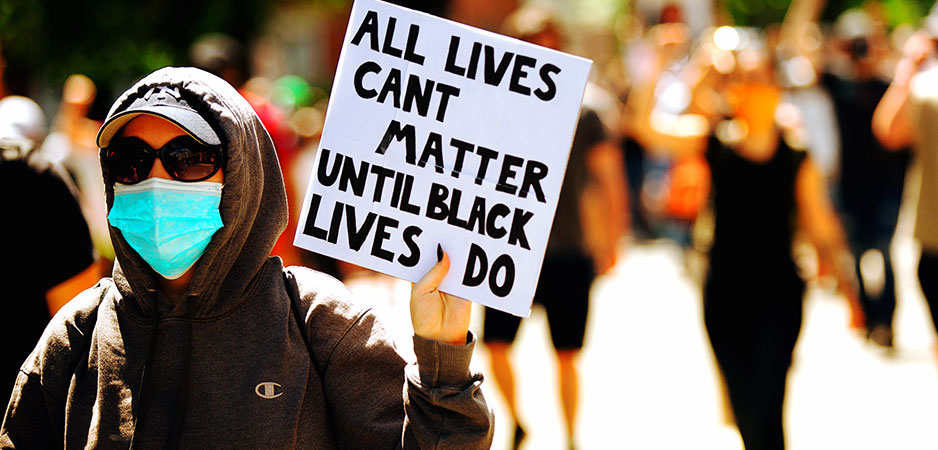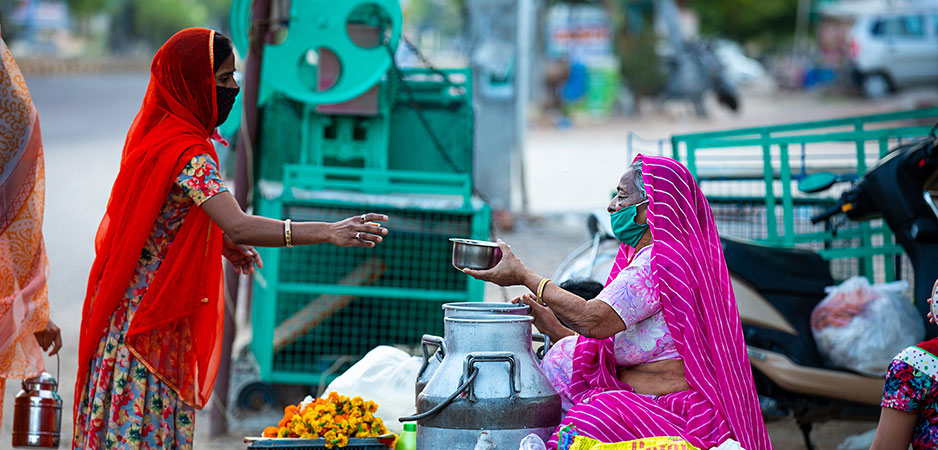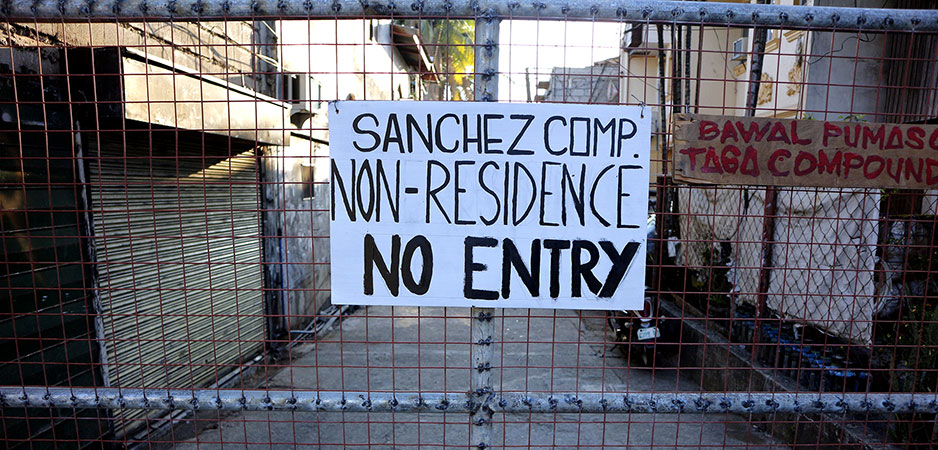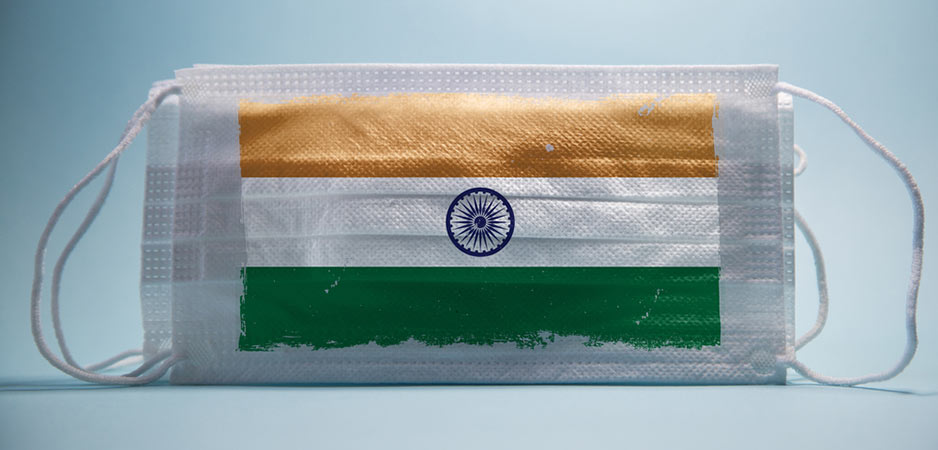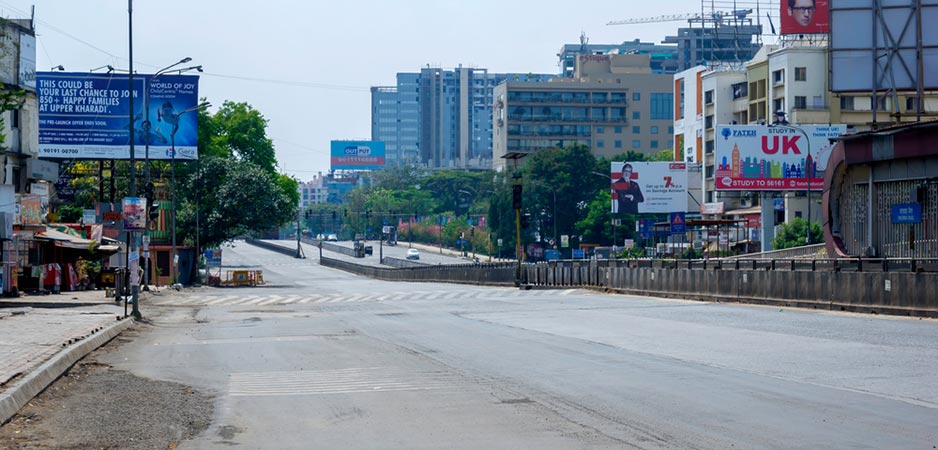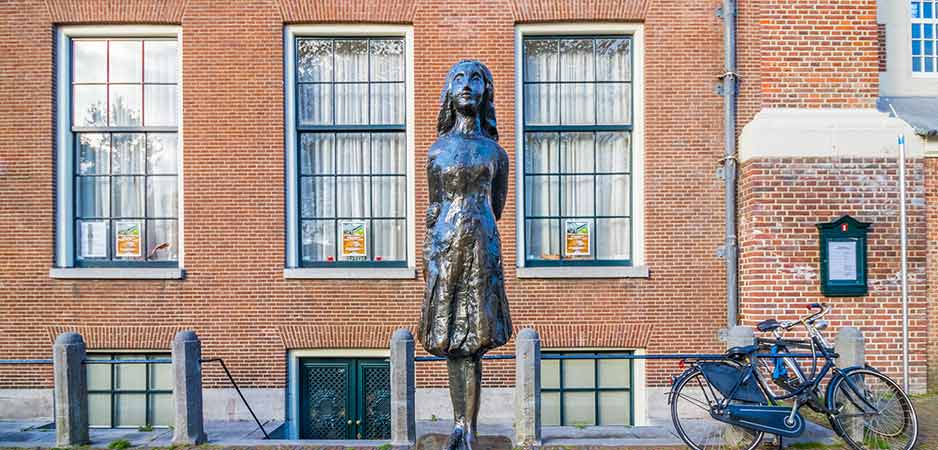Indonesia has been hit hard by the coronavirus pandemic. At the time of publishing, there have been more than 19,000 confirmed cases and over 1,200 deaths. Due to a lack of testing — just 776 people per 1 million in a country with a population of 268 million — the number of infections is believed to be much higher.
Now, Indonesians are concerned as Eid al-Fitr — the Islamic festival that marks the end of Ramadan — takes place on either May 23 or 24, and it is often a time when people travel from cities where they live and work back to their hometowns. In 2019, in the greater Jakarta area, there were 14.9 million people who traveled home for the festival. Likewise, there were 5.6 million in Central Java, 3.7 million in West Java and 1.6 million in East Java. This could mean that COVID-19, the disease caused by the novel coronavirus, could spread even further if a similar situation takes place this week.
COVID-19: What Indonesia Can Learn From South Korea and Taiwan
The problem is that urban centers like the greater Jakarta area are highly exposed to possible infections. In this region alone, around 6,000 people have been confirmed with COVID-19 and 483 have died. If large numbers of people travel before Eid, there is a high risk of virus transmission in other regions such as Sumatra, Kalimantan, Sulawesi or the small villages of Java. These are places where urbanized Indonesians originally hail from and, therefore, if they return, there is a risk of these islands being exposed to the coronavirus.
While the government has introduced measures to restrict mass travel during Eid al-Fitr, its instructions have confused Indonesians. In this case, Indonesia should step up its efforts to limit travel during the Eid festivities, and it could take lessons from Beijing’s handling of the Chinese New Year in January.
Indonesia’s Confusing Policy
The confusion over Jakarta’s policy to ban mass travel lies in the fact that just a few days after the measures were put forward, the government introduced another piece of legislation. This stipulated that people could return to their hometowns if they obtained a permit from the authorities, but only if they had a valid reason to travel.
As a result, many have criticized the government’s actions. Not only that but, in the last few weeks, Indonesians have also focused on the difference between the terms mudik (going home) and pulang kampung (returning home). On April 22, President Joko “Jokowi” Widodo said in an interview that mudik is temporary but pulang kampung applies to those who return indefinitely. According to him, the former is for people who want to visit their home village for a short vacation — which is prohibited — while the latter refers to migrant workers who have lost their jobs due to the economic disruption caused by the pandemic.
In the government’s definition, “returning home” involves the movement of people due to economic factors, while “going home” is a form of cultural behavior. For many, however, this shows that Jokowi’s government is not serious about preventing a mass exodus during Eid al-Fitr to slow the spread of the coronavirus.
Both mudik and pulang kampung have been used interchangeably, which has led to certain questions. For example, what about those who still have jobs and can afford to live in big cities but want to go home for Eid? How will the government ensure that they don’t travel?
The government has drawn up a plan for those who wish to return home indefinitely. This includes completing relevant paperwork, not returning to the city, undergoing health checks and adhering to self-isolation once back in their villages.
Yet given the number of people who simply want to return home for Eid al-Fitr — potentially reaching tens of millions — it is difficult to guarantee that this will be effective. Despite the distinction between mudik and pulang kampung, there will likely be people who just want to travel on Eid but falsely claim they wish to migrate back home permanently. A strong control mechanism from the government to identify those “going home” vs. others “returning home” will be difficult.
What makes the policy even more confusing is that despite the ban, the Ministry of Transport has permitted all commercial services to operate in the country. According to the government, the decision has been made to limit the impact of the coronavirus on the economy. The transport minister, Budi Karya Sumadi, has also allowed politicians to travel to other parts of the country as long as it is a business trip and not personal travel.
Given this, it is not surprising that the government’s policy concerning mass travel during the Eid festival has faced criticism.
Lessons from Wuhan
In this regard, Indonesia could learn lessons from Wuhan, the Chinese city where the novel coronavirus was first discovered in late 2019, just weeks before the Chinese New Year. Like Eid in Indonesia, the New Year is a time where Chinese people go home in droves to spend time with their families.
The Chinese government knew that the mass movement of people would have meant the coronavirus would spread like wildfire in a country with 1.4 billion people, so the authorities introduced strict measures. The government halted nearly all public transport in and out of Wuhan — which is where the outbreak first emerged — just days before the Chinese New Year. This was combined with a lockdown of Wuhan as people were banned from even leaving their homes. Daily necessities like food and other supplies were delivered to them. Public places were also closed and events were canceled.
While the measures taken by China were criticized as being extreme, Indonesia should prohibit all travel during Eid al-Fitr. This should apply to both people visiting their home villages and also those who are migrating permanently. People who have lost their jobs should be allowed to return to their hometowns once Eid is over as a way of preventing mass travel at the same time. The government should introduce strict penalties for those who flout the law.
In Italy, before a total lockdown was introduced in March for the Lombardy region in an attempt to slow the spread of the coronavirus, people rushed to travel to different parts of the country. If the same thing happens in Indonesia, particularly in the epicenter of Jakarta, there is a risk of other hotspots of infection popping up. As a result, Indonesia would find it more and more difficult to control the health crisis.
Before a travel ban and lockdown were enforced in Wuhan, 5 million people had left the city. China provided facilities for quarantine and people diagnosed with COVID-19 were isolated in hospitals. This was supported by “grassroots activities for routine screening, contact tracing, and early detection and medical care of COVID-19 patients.”
With millions of people potentially traveling during Eid al-Fitr, it is clearly difficult for Indonesian authorities to monitor everyone. In this case, Jakarta needs to ensure that it prepares for an outbreak of the virus and clusters forming in other parts of the country. This will mean testing, contact tracing and opening facilities for quarantine. Preparation is of paramount importance, but this must be combined with a ban on travel during this week’s busy Islamic festival.
The views expressed in this article are the author’s own and do not necessarily reflect Fair Observer’s editorial policy.
For more than 10 years, Fair Observer has been free, fair and independent. No billionaire owns us, no advertisers control us. We are a reader-supported nonprofit. Unlike many other publications, we keep our content free for readers regardless of where they live or whether they can afford to pay. We have no paywalls and no ads.
In the post-truth era of fake news, echo chambers and filter bubbles, we publish a plurality of perspectives from around the world. Anyone can publish with us, but everyone goes through a rigorous editorial process. So, you get fact-checked, well-reasoned content instead of noise.
We publish 2,500+ voices from 90+ countries. We also conduct education and training programs
on subjects ranging from digital media and journalism to writing and critical thinking. This
doesn’t come cheap. Servers, editors, trainers and web developers cost
money.
Please consider supporting us on a regular basis as a recurring donor or a
sustaining member.
Support Fair Observer
We rely on your support for our independence, diversity and quality.
Will you support FO’s journalism?
We rely on your support for our independence, diversity and quality.


